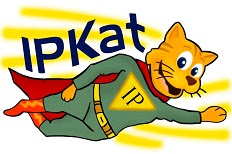
Colombian Constitutional Court mandates Google to eliminate a blog from its platform Blogger
 On 2016, John William Fierro Caicedo, the owner of the company ‘Muebles Caquetá’ (Caquetá Furniture), instituted an action of ‘tutela’ against Google Inc. and the Ministry of Information Technology and Communications of Colombia (MinTIC) for the alleged violation of his rights to intimacy, good name, and dignity (Articles 15 and 21, Political Constitution of Colombia).
On 2016, John William Fierro Caicedo, the owner of the company ‘Muebles Caquetá’ (Caquetá Furniture), instituted an action of ‘tutela’ against Google Inc. and the Ministry of Information Technology and Communications of Colombia (MinTIC) for the alleged violation of his rights to intimacy, good name, and dignity (Articles 15 and 21, Political Constitution of Colombia).
This request was made because a person using the Blogger platform (owned by Google Inc.) anonymously created a blog named ‘No compren en Muebles Caquetá! Estafadores!’ (Do not buy at Caquetá Furniture! Scammers!). This blog contains some slanderous affirmations, such as: ‘Furniture Caquetá, directed by the fraudster William Fierro, is dedicated to defrauding people by various means. They ask for an advance or the full payment first, and after it is received, they will disappear with your money.’ (Muebles Caquetá la cual dirige el estafador William Fierro, se dedican a estafar a la gente por diversos medios. Piden primero un adelanto o el dinero completo y después de que se lo entregas desaparecen con tu dinero).
 John William Fierro Caicedo not only denies such accusations, but also affirms that the content of this blog has brought problems to his family and his business.
John William Fierro Caicedo not only denies such accusations, but also affirms that the content of this blog has brought problems to his family and his business.
In response to the action of ‘tutela’, the MinTIC argued that according to Law 1341 of 2009 and Decree 2618 of 2012 it is not the national authority responsible for the surveillance and control of the companies publishing contents on the web, and requested its dissociation from the legal process.
For its part, Google Inc. affirmed that ‘although the company owns the tool www.blogger.com, it is not responsible for the information and content written and shared by users on the aforementioned digital platform, and that Google, for its part, only acts as a tool processor and as such, imposes policies on users, but does not manage, control, or produce contents’ (si bien la compañía es propietaria de la herramienta www.blogger.com, no es responsable por la información ni los contenidos redactados y compartidos por los usuarios en la mencionada plataforma digital, y que por su parte, Google solo actúa como procesador de la herramienta y como tal, impone políticas a los usuarios, más no maneja, controla, ni produce contenidos).
On August 2016, the Civil Municipal Court 21 of Bogotá handed down a ruling denying the constitutional protection requested by John William Fierro Caicedo, and disconnected the MinTIC from the process. In addition, it affirmed that neither Google Inc. nor Google Colombia Ltda. are responsible for the infringement of the human rights of the petitioner because it is not their obligation the ‘rectification, correction, elimination or complement of the information upload by users’ because they only act as tool processors.
Finally, this case was analysed by the Constitutional Court that, in Ruling T-063A/17 of this year, decided to revoke the decision of the Civil Municipal Court. As the allegations made on the blog against Muebles Caquetá and its owner were not proven, the Court considered them in violation of the rights to good name and dignity of the petitioner. Consequently, it was ordered that: (i) Google Inc. and Google Colombia Ltda. have to eliminate the blog http://muebles-caqueta.blogspot.com.co; and, (ii) the MinTIC have to establish a national law for the protection of the rights of users on the web, particularly those concerning abusive, defamatory, dishonourable, slanderous and injurious posts that undermine the right of dignity.
It is worth highlighting that although the Court acknowledged that under the US legislation Google Inc. might have not responsibility for the contents published using their processors, it mandates that both Google Inc. and Google Colombia Ltda. in carrying on their activities in Colombia have to respect the rights of users and consumers in the country.














